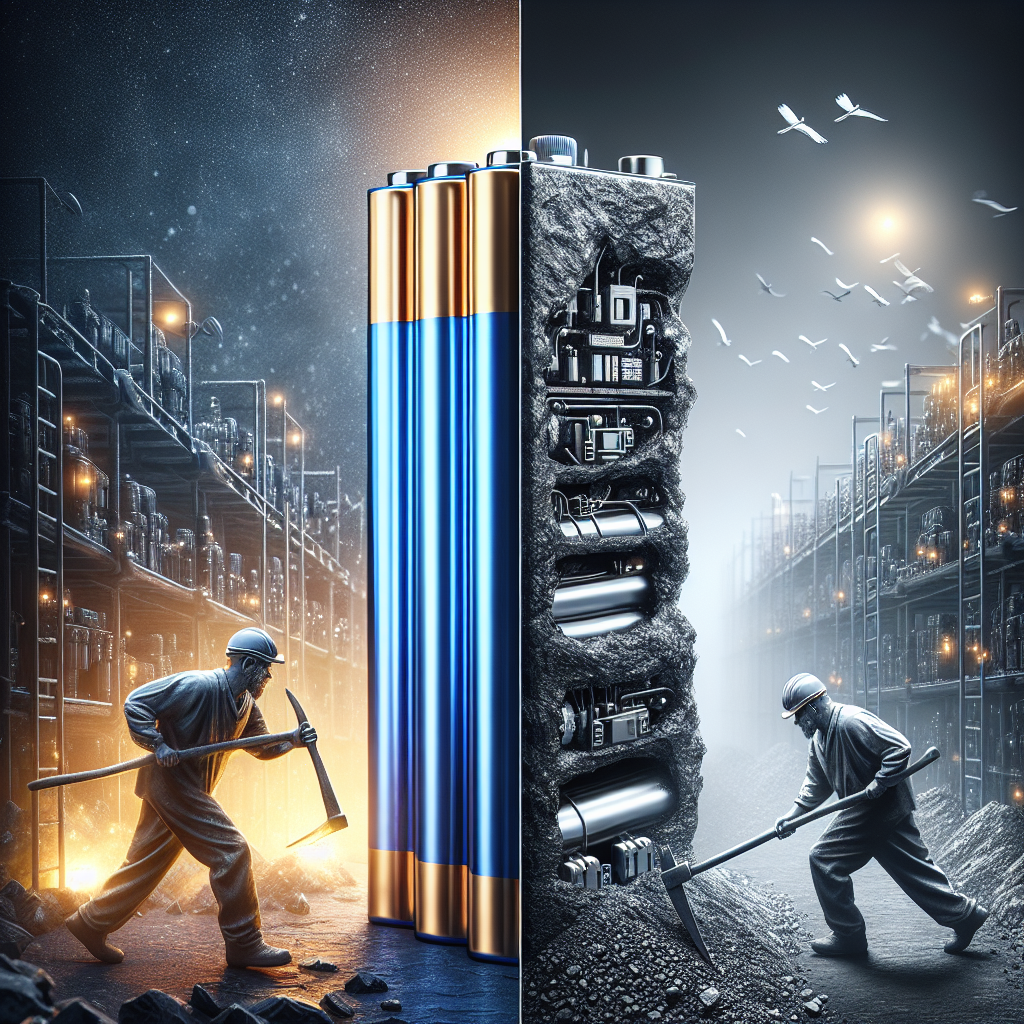The Controversial Side of Cobalt: Energy Storage and Human Rights
Introduction
In the global race towards sustainable energy, cobalt has emerged as a critical yet controversial mineral. Primarily sourced from the Democratic Republic of Congo (DRC), cobalt is essential for manufacturing lithium-ion batteries, which power everything from electric vehicles (EVs) to smartphones. However, beneath its shiny facade of technological advancement lies a complex web of human rights issues, environmental concerns, and geopolitical tensions that paint a not-so-rosy picture of cobalt extraction and its implications.
The Significance of Cobalt in Energy Storage
Cobalt stands out in the periodic table for its unique properties that make it indispensable in the realm of energy storage. Its ability to increase the energy density of lithium-ion batteries not only extends the life of these batteries but also enhances their safety, making cobalt a cornerstone of the green energy revolution. As the world shifts towards electric vehicles and renewable energy systems, the demand for cobalt is expected to soar, emphasizing its critical role in achieving global sustainability goals.
The Dark Side of Cobalt Mining
Human Rights Violations
The allure of cobalt is tainted by the grim realities of its extraction process, particularly in the DRC, which is responsible for more than 60% of the world’s cobalt supply. Reports of child labor, unsafe working conditions, and exploitation of workers paint a stark contrast to the ethical ideals championed by proponents of green technology. Miners, including children, are often subjected to hazardous conditions, with little to no protective gear, working for meager wages. This exploitation is rooted in a complex supply chain that obscures the origins of cobalt, making it difficult for consumers and companies to ensure their products are ethically sourced.
Environmental Degradation
Beyond human rights, the environmental impact of cobalt mining is equally concerning. The extraction process often involves significant land degradation, water pollution, and the release of toxic substances that threaten local ecosystems and communities’ livelihoods. In the absence of stringent regulations and responsible mining practices, the environmental footprint of cobalt mining contradicts the environmental sustainability goals it aims to support.
Ethical Sourcing and Technological Alternatives
Initiatives for Ethical Sourcing
Acknowledging the controversies surrounding cobalt, several initiatives aim to promote ethical sourcing practices. Organizations like the Responsible Cobalt Initiative and the Cobalt Refinery Supply Chain Due Diligence Standard are working towards transparency, accountability, and improvement of conditions in cobalt mines. Major technology and automotive companies are also adopting blockchain technology to trace the origin of cobalt, ensuring it does not contribute to human rights abuses.
Research on Alternatives
The search for alternatives to cobalt in lithium-ion batteries is gaining momentum, driven by the ethical and environmental issues associated with its mining. Scientists and researchers are exploring materials like nickel, manganese, and even cobalt-free battery technologies to reduce dependence on this controversial mineral. While these alternatives are in various stages of development, they represent a promising step towards more sustainable and ethical energy storage solutions.
The Geopolitical Landscape
The cobalt supply chain is not just a matter of environmental and ethical concern but also a geopolitical issue. The concentration of cobalt reserves in politically unstable regions like the DRC, coupled with China’s dominance in cobalt refining and battery production, poses significant risks to global supply chains. This scenario has spurred efforts in other countries to secure cobalt sources or develop alternatives, highlighting the strategic importance of cobalt in the global energy transition.
Conclusion
Cobalt, with its dual identity as a beacon of green technology and a source of contention, embodies the complex interplay between environmental sustainability, human rights, and geopolitical dynamics. As the demand for energy storage solutions grows, so does the urgency to address the controversial aspects of cobalt extraction. Through ethical sourcing, technological innovation, and international cooperation, the global community can pave the way for a future where the benefits of cobalt are realized without compromising ethical and environmental standards.
FAQs
Why is cobalt important for lithium-ion batteries?
Cobalt is crucial for lithium-ion batteries because it increases their energy density, which enhances battery life and safety.
What are the main human rights issues associated with cobalt mining?
The main human rights issues include child labor, unsafe working conditions, and the exploitation of workers in the mining areas, particularly in the DRC.
How can consumers ensure their products do not contain unethically sourced cobalt?
Consumers can look for products certified by initiatives that promote ethical sourcing of cobalt and support companies that are transparent about their supply chains and committed to responsible sourcing practices.
Are there any viable alternatives to cobalt in batteries?
Yes, researchers are exploring alternatives like nickel, manganese, and cobalt-free battery technologies, although these are at various stages of development.
How does the geopolitical aspect of cobalt affect its supply?
The concentration of cobalt reserves in politically unstable regions and China’s control over refining and battery production create supply risks, prompting efforts to secure cobalt sources or develop alternatives globally.

